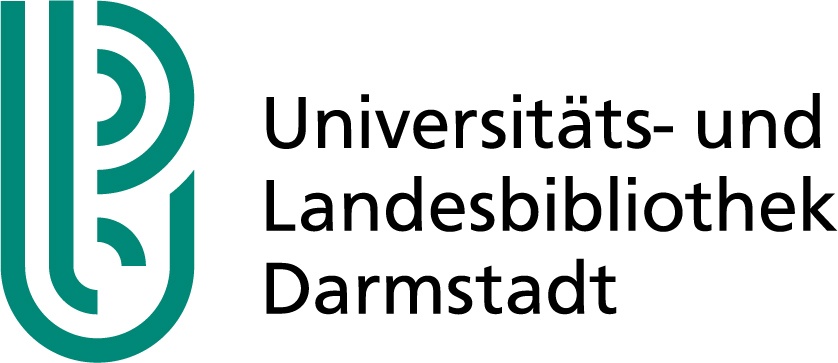LaTeX
In contrast to conventional word processing programs such as Microsoft Word, texts are formatted in LaTeX via commands, similar to a programming language. The initially time-consuming preparation of a document facilitates the writing process, especially for larger tasks and exacting formal requirements. LaTeX is considered a standard program for generating papers and publications in the academic field. Thanks to its easy formulating options, it is especially widespread in technical/mathematical subjects.
The use of LaTeX requires Tex distribution and a Tex Editor. Our recommended Tex distribution is TeX Live with the TeX Editor TeXStudio.
With ShareLaTeX, you can work together on a document as a group – without local installation. You will find further information on the HRZ pages.
ULB offers Word processing learning formats, including a monthly workshop, individual advice in a consultation and tailor-made events for groups of 5 people or more. At ULB, we provide advice and training on the functionality of LaTeX. For for advice on text design and writing, please contact the TU SchreibCenter.
Help and contact
You can find some help in our wiki.
Do you need help or have any questions? Please contact infokompetenz@ulb.tu-….
For bug reports and enhancement requests please use the
TU Darmstadt offers a newly created set of templates for LaTeX systems, which follows the specifications of the Corporate Design. The templates can be installed right out of the box as a package (“tuda-ci”) within current versions of the large TeX distributions (TeXlive 2019, MikTeX 2.9, MacTeX 2019). Additionally, the package is provided via CTAN. All fonts required are available in the distributions mentioned above and may be installed using the corresponding tools. Therefore no separate font installations are necessary any more. The templates may be compiled with pdfLaTeX or LuaLaTeX. (Support for XeLaTeX is not built into the templates originally.)
To produce PDF/A conformal documents, e.g. for archiving at ULB, use of LuaLaTeX is recommended.
In addition to class and style files DEMO documents are part of the package. These contain some brief documentation and demonstrate available options of the different document types. The corresponding PDFs of the DEMO files are located in the subfolder /doc/latex/tuda-ci/. within the main texmf root tree of the installed TeX distribution. (To get an idea, where to find the texmf root tree in your file system, you should have a look at the documentation of your TeX distribution.)
The following templates are part of the package tuda-ci (in brackets you find the name of corresponding DEMO files):
- tudapub – Template for a general publication (DEMO-TUDaPub; DEMO-TUDaReport)
- tudathesis – Template for BSc/MSc Theses (DEMO-TUDaThesis) and Dissertations (DEMO-TUDaPhD)
- tudasciposter – Template for a scientific poster (DEMO-TUDaSciPoster)
- tudaposter – Template for a general poster (DEMO-TUDaPoster; DEMO-TUDaAnnouncement for bulletins/announcements etc.)
- tudabeamer – Template for slides (DEMO-TUDaBeamer)
- tudaletter – Template for a letter (DEMO-TUDaLetter)
- tudaexercise – Template for exercise sheets (DEMO-TUDaExercise)
The tuddesign templates offered formerly are not supported anymore.
Download and installation
After installation of the package tuda-ci within the TeX distribution of your choice, only the Logo of TU Darmstadt (opens in new tab) and the logos of the mechanical engineering extension (extract zip file) in PDF format have to be added somewhere within the local LaTeX tree or in the current working directory. Alternatively, you may download the following ZIP archive logo_bundle and extract it in the top level directory of the local LaTeX tree.
We recommend a full installation of the TeX distribution used, to resolve all dependencies of tuda-ci from other packages. In linux you should install a current TeXlive from the bundles available at www.tug.org. This ensures installation of most recent package versions. (In some cases problems were reported when using tuda-ci within a TeX[live] system, that has been installed using the package management of the respective linux distribution.)
Alternatively, the following installation options exist:
The ZIP archive tuda_templates, which has to be extracted in the top level directory of the local LaTeX tree, contains all required package files (including the logo of TU Darmstadt).
The current development version of the package files may be downloaded/pulled from Github. Please note, that this requires additional installation steps, as you have to run once “addlicense.sh” directly after unpacking the downloaded archive, for example. (Therefore, that installation procedure is more suited for power users, who want to keep up to date with the latest changes.)
After extraction the filename database of the TeX distribution in use has to be updated once. Information on this step may be found within the documentation of your distribution.
As all above listed download files, apart from the Github version, contain the logo of TU Darmstadt, they can be only downloaded with a valid TU-ID.

